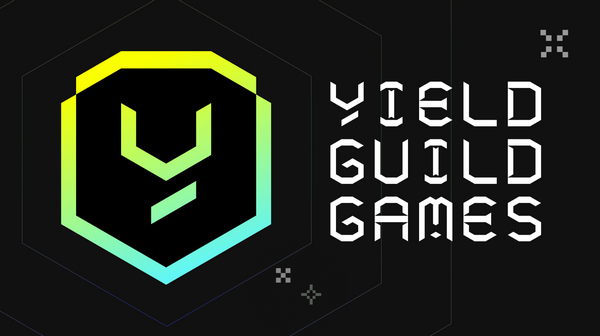-
 Bitcoin
Bitcoin $103,324.2322
1.92% -
 Ethereum
Ethereum $2,339.0498
13.05% -
 Tether USDt
Tether USDt $1.0000
-0.01% -
 XRP
XRP $2.3592
5.05% -
 BNB
BNB $635.8067
2.90% -
 Solana
Solana $171.9279
7.34% -
 USDC
USDC $1.0000
0.00% -
 Dogecoin
Dogecoin $0.2046
7.15% -
 Cardano
Cardano $0.7857
7.01% -
 TRON
TRON $0.2621
2.81% -
 Sui
Sui $3.9054
-0.52% -
 Chainlink
Chainlink $16.0293
4.21% -
 Avalanche
Avalanche $23.2416
9.01% -
 Stellar
Stellar $0.2962
4.92% -
 Shiba Inu
Shiba Inu $0.0...01504
7.31% -
 Hedera
Hedera $0.2003
4.41% -
 Hyperliquid
Hyperliquid $25.1294
14.20% -
 Toncoin
Toncoin $3.2808
3.06% -
 Bitcoin Cash
Bitcoin Cash $408.8948
-2.24% -
 UNUS SED LEO
UNUS SED LEO $8.7335
-0.88% -
 Polkadot
Polkadot $4.7823
10.91% -
 Litecoin
Litecoin $99.1240
6.82% -
 Monero
Monero $310.6805
5.94% -
 Dai
Dai $1.0002
0.00% -
 Bitget Token
Bitget Token $4.4808
0.52% -
 Pepe
Pepe $0.0...01242
19.60% -
 Pi
Pi $0.7244
14.56% -
 Ethena USDe
Ethena USDe $1.0001
-0.02% -
 Uniswap
Uniswap $6.3328
14.22% -
 Bittensor
Bittensor $432.0303
3.89%
how ygg coin trading works
Understanding the intricate mechanisms of YGG COIN trading empowers investors to navigate the volatile digital asset market, aiming to maximize returns and minimize risks within the expanding Yield Guild Games ecosystem.
Nov 07, 2024 at 03:53 am

How YGG COIN Trading Works: A Comprehensive Guide
Introduction
Yield Guild Games (YGG) is a decentralized autonomous organization (DAO) that invests in non-fungible tokens (NFTs) used in blockchain-based games. YGG's mission is to create a sustainable and profitable ecosystem for gamers, investors, and developers in the metaverse. The native token of the YGG ecosystem is YGG COIN, which plays a crucial role in the platform's operations, governance, and the trading of game assets. This guide will delve into the intricacies of YGG COIN trading, offering a comprehensive understanding of its mechanisms and implications.
1. Understanding the YGG COIN Ecosystem
The YGG COIN ecosystem is a complex and interconnected network involving various stakeholders and components.
- YGG Treasury: The treasury manages the YGG COIN reserves and distributes funds to support ecosystem development, game investments, and community initiatives.
- YGG Prize Pool: A dedicated pool of YGG COINS reserved for rewarding players, contributors, and YGG scholars.
- YGG SubDAOs: SubDAOs are self-organizing entities within the YGG ecosystem that focus on specific areas, such as game development, community management, or investment research.
- YGG Scholars: Players who receive funding from YGG to acquire game NFTs and participate in earning opportunities.
2. Acquiring YGG COIN
There are several ways to acquire YGG COINS:
- Exchanges: YGG COIN is listed on multiple cryptocurrency exchanges, including Binance, Huobi, and OKX. Users can purchase YGG COINS using fiat currencies or other cryptocurrencies.
- DEXes: Decentralized exchanges (DEXes) also offer trading pairs for YGG COIN. Popular DEXes include Uniswap, SushiSwap, and PancakeSwap.
- YGG Staking: Users can stake YGG COINS in the YGG treasury to earn rewards. In addition, subDAOs may offer their own staking programs with exclusive perks.
3. Trading YGG COIN
YGG COIN trading involves buying and selling the token on exchanges or DEXes. The following steps outline the process:
- Choose a Platform: Select a reliable exchange or DEX that supports YGG COIN trading. Consider factors such as fees, liquidity, and security.
- Create an Account: Register for an account on the platform and complete the necessary verification steps.
- Fund Your Account: Deposit fiat currencies or other cryptocurrencies into your account to purchase YGG COINS.
- Place an Order: Use the trading interface to place a buy or sell order for YGG COINS. Specify the price and quantity you wish to trade.
- Order Execution: The exchange or DEX will execute your order at the specified price or the best available price.
- Settlement: Once the order is executed, the YGG COINS will be credited or debited from your account, depending on whether you bought or sold.
4. Factors Influencing YGG COIN Price
The price of YGG COIN is influenced by various factors:
- Game Performance: The success and popularity of games supported by YGG can positively impact the demand for YGG COIN.
- NFT Market: The overall market conditions for NFTs and the value of game assets within the YGG ecosystem can drive YGG COIN prices.
- Adoption: The growth of the YGG community, partnerships with other projects, and the utilization of YGG COIN for governance and staking can contribute to increased demand.
- Economic Conditions: Macroeconomic factors, such as interest rates, inflation, and global economic outlook, can affect the demand and price of YGG COIN.
5. Strategies for YGG COIN Trading
Traders employ various strategies to maximize their returns when trading YGG COIN:
- Day Trading: Buying and selling YGG COIN within the same trading day to profit from short-term price fluctuations.
- Swing Trading: Holding YGG COIN for several days or weeks, aiming for mid-term price movements based on technical or fundamental analysis.
- Hodling: Long-term investment strategy involving holding YGG COIN over extended periods, anticipating significant appreciation.
- Risk Management: Implementing stop-loss orders, diversification, and position sizing to mitigate potential losses.
6. Additional Considerations
Traders should consider the following aspects when engaging in YGG COIN trading:
- Transaction Fees: Exchanges and DEXes charge fees for YGG COIN trading. Factors such as transaction volume, trading pairs, and market conditions can influence fees.
- Slippage: The difference between the intended order price and the actual execution price due to market volatility.
- Security: Store YGG COINS in a secure hardware wallet to protect against theft or hacking.
- Research: Conduct thorough research on the YGG ecosystem, game partnerships, and broader industry trends to make informed trading decisions.
Disclaimer:info@kdj.com
The information provided is not trading advice. kdj.com does not assume any responsibility for any investments made based on the information provided in this article. Cryptocurrencies are highly volatile and it is highly recommended that you invest with caution after thorough research!
If you believe that the content used on this website infringes your copyright, please contact us immediately (info@kdj.com) and we will delete it promptly.
- The $TRUMP GALA DINNER
- 2025-05-10 02:30:13
- Which crypto could boom in 2025 as the market recalibrates post-halving and post-tariff?
- 2025-05-10 02:30:13
- Lido (stETH) holders get more influence in protocol decisions
- 2025-05-10 02:25:15
- Bitcoin (BTC) market capitalization surpasses $3.27 trillion as BTC price reaches a high of $103,600
- 2025-05-10 02:25:15
- SHIB Coin Price Rose as it Rallied Alongside Other Altcoins. Its Rally Also Coincided with the Ethereum Breakout to $2,400, Pointing to a 200% Surge
- 2025-05-10 02:20:12
- Renewed Investor Optimism Sends Ethereum (ETH) Above $2,400
- 2025-05-10 02:20:12
Related knowledge

What is Ethereum’s Slashing mechanism and how to punish malicious behavior?
Feb 20,2025 at 03:08am
Key PointsOverview of slashingDifferent types of slashing in EthereumIncentives and consequences of slashingIdentifying and reporting slashed validatorsOngoing discussions and potential improvementsEthereum's Slashing Mechanism: Punishing Malicious BehaviorEthereum's slashing mechanism is an essential tool for ensuring network security and punishing mal...

What is the verifier node of Ethereum and how to become a verifier?
Feb 19,2025 at 06:00pm
The Verifier Node of Ethereum: A Comprehensive GuideKey Points:What is a Verifier Node?How to Become a Verifier NodeResponsibilities and Rewards of a Verifier NodeMinimum Requirements for Becoming a Verifier NodePotential Difficulties in Running a Verifier Node1. What is a Verifier Node?A Verifier Node is an independent entity on the Ethereum network th...

What is Ethereum’s staking, and how to participate and earn money?
Feb 19,2025 at 04:37pm
Key Points:Understanding Ethereum's Staking MechanismSteps to Participate in StakingBenefits and Rewards of StakingSecurity and Risk ConsiderationsTechnical Requirements and Hardware OptionsPotential Challenges and Troubleshooting TipsFAQs on Ethereum StakingWhat is Ethereum's Staking?Proof-of-Stake (PoS) is a consensus mechanism used in blockchain netw...

What is Ethereum’s DAO (Decentralized Autonomous Organization) and how does it work?
Feb 20,2025 at 03:12am
Key PointsDefinition and Structure of a DAOGovernance and Decision-Making in DAOsBenefits and Use Cases of DAOsChallenges and Limitations of DAOsWhat is Ethereum's DAO (Decentralized Autonomous Organization) and How Does It Work?Definition and Structure of a DAOA Decentralized Autonomous Organization (DAO) is an innovative governance and management fram...

What is Ethereum's multi-signature wallet and how to improve security?
Feb 20,2025 at 02:18pm
Key Points:Understanding the Concept of a Multi-Signature WalletBenefits and Drawbacks of Multisig WalletsRequirements for Setting Up a Multisig WalletStep-by-Step Guide to Generating a Multisig WalletImplementing Strategies for Enhanced Security1. Understanding the Concept of a Multi-Signature WalletA multi-signature (multisig) wallet in the Ethereum e...

What is Ethereum's oracle and how to provide data for smart contracts?
Feb 21,2025 at 01:30am
Key Points:Understanding the concept of oracles in EthereumExploring different types of oraclesDetailed guide on how to provide data for smart contractsAddressing potential challenges and considerationsWhat is Ethereum's Oracle?Oracles are crucial components in the Ethereum ecosystem, enabling smart contracts to access real-world data and off-chain even...

What is Ethereum’s Slashing mechanism and how to punish malicious behavior?
Feb 20,2025 at 03:08am
Key PointsOverview of slashingDifferent types of slashing in EthereumIncentives and consequences of slashingIdentifying and reporting slashed validatorsOngoing discussions and potential improvementsEthereum's Slashing Mechanism: Punishing Malicious BehaviorEthereum's slashing mechanism is an essential tool for ensuring network security and punishing mal...

What is the verifier node of Ethereum and how to become a verifier?
Feb 19,2025 at 06:00pm
The Verifier Node of Ethereum: A Comprehensive GuideKey Points:What is a Verifier Node?How to Become a Verifier NodeResponsibilities and Rewards of a Verifier NodeMinimum Requirements for Becoming a Verifier NodePotential Difficulties in Running a Verifier Node1. What is a Verifier Node?A Verifier Node is an independent entity on the Ethereum network th...

What is Ethereum’s staking, and how to participate and earn money?
Feb 19,2025 at 04:37pm
Key Points:Understanding Ethereum's Staking MechanismSteps to Participate in StakingBenefits and Rewards of StakingSecurity and Risk ConsiderationsTechnical Requirements and Hardware OptionsPotential Challenges and Troubleshooting TipsFAQs on Ethereum StakingWhat is Ethereum's Staking?Proof-of-Stake (PoS) is a consensus mechanism used in blockchain netw...

What is Ethereum’s DAO (Decentralized Autonomous Organization) and how does it work?
Feb 20,2025 at 03:12am
Key PointsDefinition and Structure of a DAOGovernance and Decision-Making in DAOsBenefits and Use Cases of DAOsChallenges and Limitations of DAOsWhat is Ethereum's DAO (Decentralized Autonomous Organization) and How Does It Work?Definition and Structure of a DAOA Decentralized Autonomous Organization (DAO) is an innovative governance and management fram...

What is Ethereum's multi-signature wallet and how to improve security?
Feb 20,2025 at 02:18pm
Key Points:Understanding the Concept of a Multi-Signature WalletBenefits and Drawbacks of Multisig WalletsRequirements for Setting Up a Multisig WalletStep-by-Step Guide to Generating a Multisig WalletImplementing Strategies for Enhanced Security1. Understanding the Concept of a Multi-Signature WalletA multi-signature (multisig) wallet in the Ethereum e...

What is Ethereum's oracle and how to provide data for smart contracts?
Feb 21,2025 at 01:30am
Key Points:Understanding the concept of oracles in EthereumExploring different types of oraclesDetailed guide on how to provide data for smart contractsAddressing potential challenges and considerationsWhat is Ethereum's Oracle?Oracles are crucial components in the Ethereum ecosystem, enabling smart contracts to access real-world data and off-chain even...
See all articles






















































































